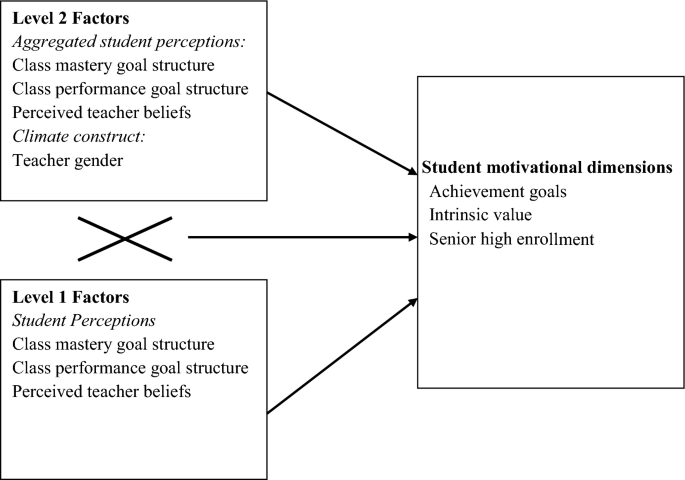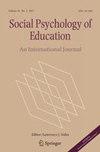感知教师信念和课堂目标结构如何与中学数学和英语的动机和入学率相关?
IF 3.2
2区 心理学
Q1 PSYCHOLOGY, EDUCATIONAL
引用次数: 0
摘要
摘要本研究考察了学生感知教师信念、课堂目标结构、性别(师生)和自身感知才能(控制先前成就)如何共同解释学生成就目标、内在价值和数学和英语入学选择的动机结果。研究对象为1086名9-11年级学生(N = 380,369,337),分别来自澳大利亚悉尼市区3所男女同校的中产阶级学校。层次线性模型显示,学生感知的教师信念是数学和英语动机结果的最一致的预测因子,超过其他测量影响的影响。感知教师信念调节了课堂目标结构的影响,以及性别与英语动机结果的关系。年级水平效应在年龄较大的学生中更为积极,这与11年级的过渡相吻合。本文章由计算机程序翻译,如有差异,请以英文原文为准。

How do perceived teacher beliefs and classroom goal structures relate to motivations and enrollments in secondary school mathematics and English?
Abstract Our study examined how students’ perceived teacher beliefs and classroom goal structures, gender (of teachers and students) and own perceived talent, controlling for prior achievements, together explained motivational outcomes of students’ achievement goals, intrinsic value and enrollment choices in mathematics and English. Participants were 1086 grades 9–11 students (respective N s = 380, 369, 337) from 3 coeducational middle-class schools in metropolitan Sydney, Australia. Hierarchical linear modeling revealed student-perceived teacher beliefs as the most consistent predictor of motivational outcomes in mathematics and English, over and above the effects of other measured influences. Perceived teacher beliefs moderated the effects of classroom goal structures, as well as relationships of gender with motivational outcomes in English. Grade-level effects were more positive among older students which coincided with the grade 11 transition.
求助全文
通过发布文献求助,成功后即可免费获取论文全文。
去求助
来源期刊

Social Psychology of Education
PSYCHOLOGY, EDUCATIONAL-
CiteScore
5.40
自引率
3.40%
发文量
59
期刊介绍:
The field of social psychology spans the boundary between the disciplines of psychology and sociology and has traditionally been associated with empirical research. Many studies of human behaviour in education are conducted by persons who identify with social psychology or whose work falls into the social psychological ambit. Several textbooks have been published and a variety of courses are being offered on the `social psychology of education'', but no journal has hitherto appeared to cover the field. Social Psychology of Education fills this gap, covering a wide variety of content concerns, theoretical interests and research methods, among which are: Content concerns: classroom instruction decision making in education educational innovation concerns for gender, race, ethnicity and social class knowledge creation, transmission and effects leadership in schools and school systems long-term effects of instructional processes micropolitics of schools student cultures and interactions teacher recruitment and careers teacher- student relations Theoretical interests: achievement motivation attitude theory attribution theory conflict management and the learning of pro-social behaviour cultural and social capital discourse analysis group dynamics role theory social exchange theory social transition social learning theory status attainment symbolic interaction the study of organisations Research methods: comparative research experiments formal observations historical studies literature reviews panel studies qualitative methods sample surveys For social psychologists with a special interest in educational matters, educational researchers with a social psychological approach.
 求助内容:
求助内容: 应助结果提醒方式:
应助结果提醒方式:


